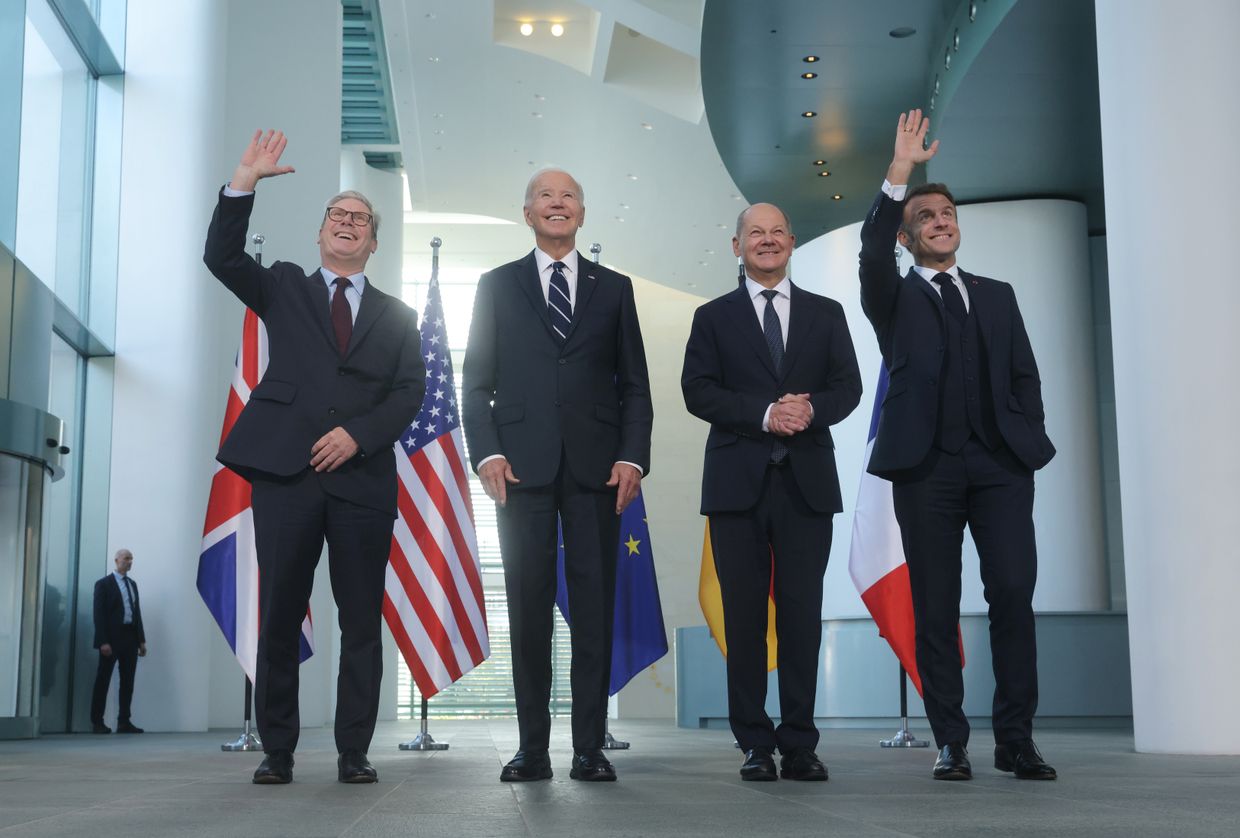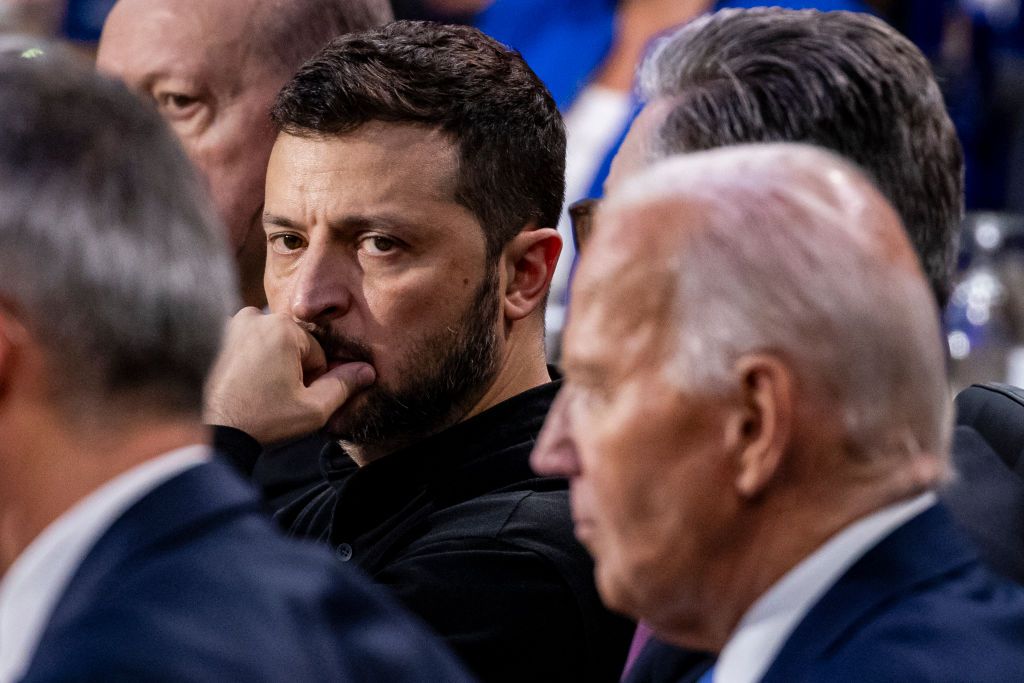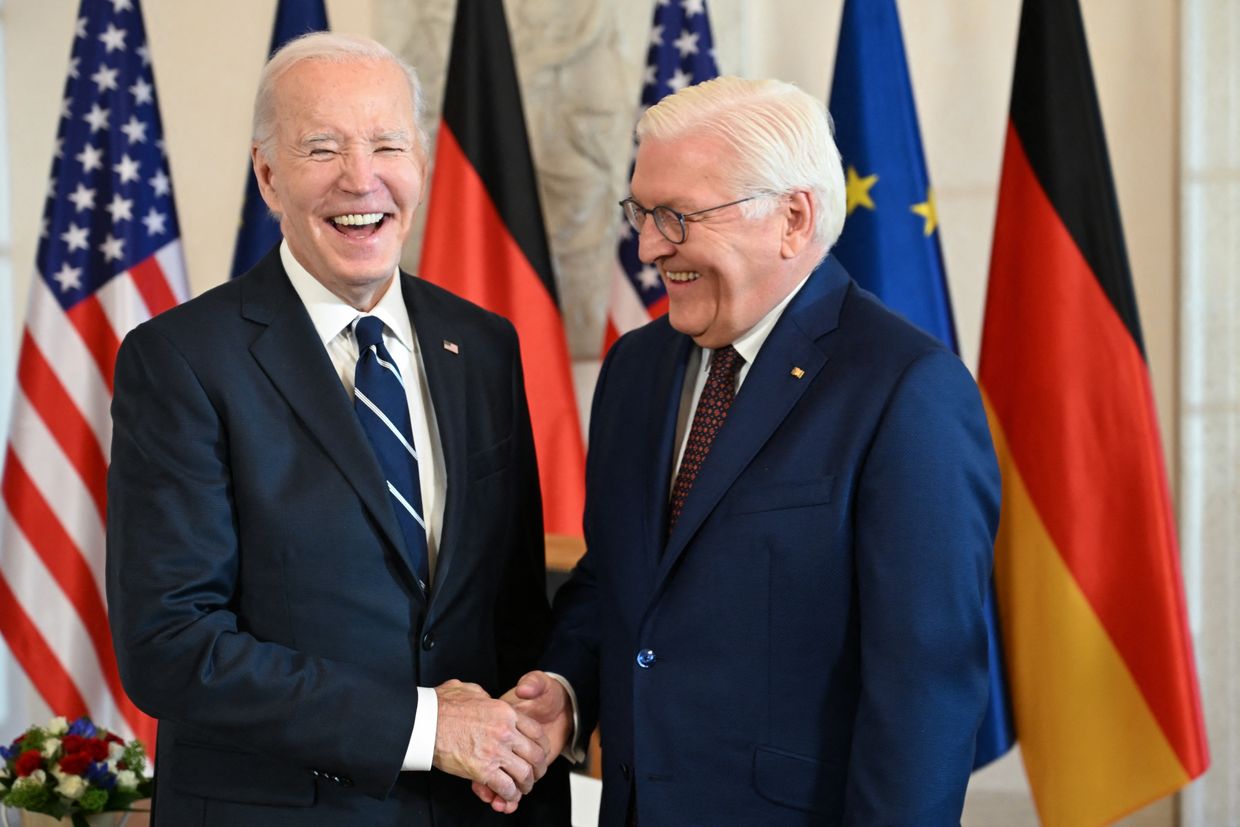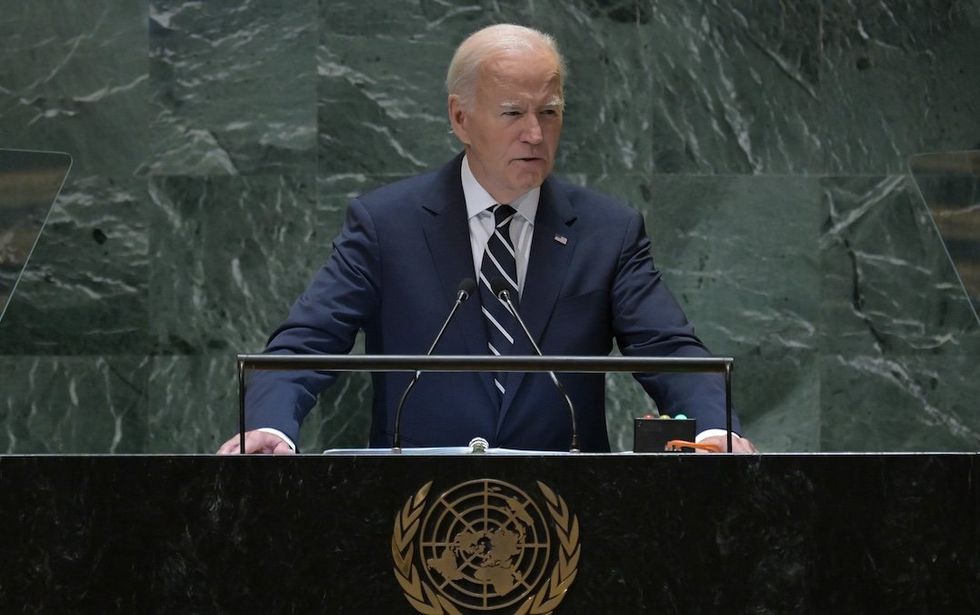Yet the reasons behind both are almost certainly the same — the U.S. presidential election on Nov. 5, uncertainty about who will take over as leader of Ukraine’s top Western ally, and how strong their backing for Kyiv will be.
With US elections looming, Biden’s Berlin swan song was all talk, no action on Ukraine
Biden’s trip to Europe failed to deliver a long-term, Trump-proof increase in support Ukraine needs to get upper hand in the fight against Russia’s invasion.by Dinara Khalilova
- Both scenarios have triggered Zelensky and other Ukrainian officials to intensify efforts to secure long-term defense support now and push allies to ease restrictions on the use of their weapons for strikes in Russia.
-----------------------------------------------------------------------------------------------------------------------------
- . . .In late September, Zelensky met with Biden to present his five-point victory plan, which includes an invitation for Ukraine to join NATO before the war ends and authorization to strike deep inside Russia with Western long-range weapons. The plan also has three classified sections shared with international partners.
- Zelensky then toured Europe with the plan but has not yet secured the full support for the strategy from either American or European leaders.
"We are supporting Ukraine as powerfully as we can and at the same time we are making sure that NATO does not become a party to the war, so that this war does not turn into an even bigger catastrophe," Scholz said in remarks to the press before the meeting with Biden on Oct. 18.
What was on Biden’s agenda?
Kurt Volker, former U.S. ambassador to NATO and special representative to Ukraine under Trump’s first presidency, said Biden's trip had two main goals.
- The first was to show the American public that Europe also contributes significantly to help Ukraine in its existential fight against Russia. Trump, who has since his first presidency lambasted European countries for not contributing enough to their defense while relying instead on U.S. taxpayers as an umbrella of security, has repeatedly said that Europe should do more to end the war raging on their continent.
- The second goal, according to Volker, was to discuss with allies how they can strengthen the EU's defense industry and provide Ukraine with more weapons to counter Russia’s vast military power.
Volker emphasized Ukraine’s urgent need for more ammunition, longer-range munitions, improved air defense systems, and additional support in the Black Sea. However, he expressed uncertainty about whether these priorities align with the Biden administration’s plans given the looming elections.
"What Ukraine needs is fairly obvious, they need more ammunition and they need it more quickly, they need to use the munitions that we're giving them at longer range," Volker said.
"So those are all things that are on the Ukrainian list. It's just that I'm not sure they're on the Biden administration's list that they intend to do," Volker added.

White House spokesperson John Kirby later said that Washington is still reviewing Ukraine’s "Victory Plan" and expects to make further security commitments at the next meeting of Western allies within the Ukraine Defense Contact Group, also known as the regular Ramstein meetings.
. . The U.S. has already indicated that Ukraine shouldn't expect a formal NATO invitation soon since there is still no consensus among allies.
- Although the latest NATO summit in the summer reaffirmed that Ukraine will join the military alliance, Sullivan said there is still "work to do" to get there, including "reforms and security conditions being met."
- The reforms involve "the institutionalization of the security support apparatus for Ukraine," Sullivan added.
. . . When asked before the Berlin visit whether Biden has been "Trump-proofing" the U.S. government for a potential Trump presidency, Sullivan replied that Biden is working to make the U.S.’s commitment to Ukraine "sustainable and institutionalized for the long term."
However, Biden's visit to Germany was never likely to yield major decisions on increasing support for Ukraine or implementing key points of Zelensky's "Victory Plan," such as a NATO invitation or permission for long-range strikes, according to Volker.
"The main reason is the same as always — fear of escalation. Fear that Russia would view this as NATO playing a direct role in attacking Russia, fear of nuclear usage…," he said.
His comments refer to the Biden administration’s long-lasting fear of Russia pulling allies into the war, potentially by conducting nuclear missile strikes on Ukraine.
=====











No comments:
Post a Comment